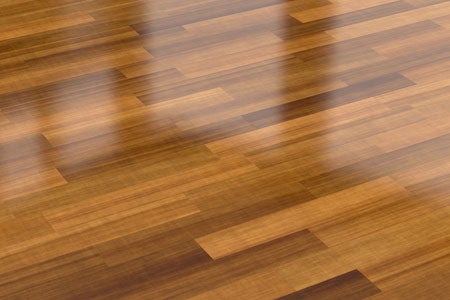Imagine yourself coming home after a long day. You kick off your shoes, ready to relax in your cozy living room, only to catch a glimpse of a sticky footprint on your gleaming hardwood floor. You grab the closest cleaning product – Clorox – and hesitate. Can you really use this powerful bleach on your precious wood?

Image: mromavolley.com
Fear not, dear homeowner. We’re about to dive into the world of hardwood floor cleaning, separating fact from fiction, and uncovering the best practices to keep your floors sparkling without sacrificing their beauty.
Understanding the Nature of Hardwood Floors
Let’s begin by understanding the delicate nature of hardwood floors. They’re crafted from natural wood, making them susceptible to damage from harsh chemicals, especially strong cleaning agents. While a wood floor’s beauty lies in its natural grain and warmth, its durability is another key aspect. Maintaining this durability is crucial for preserving the long-term value of your investment.
The Debate: Clorox and Hardwood Floors
Clorox, with its powerful bleach, is a notorious disinfectant, but it can also be a harsh aggressor against natural wood. The question arises: can a product designed to kill germs effectively clean your hardwood floors without compromising their integrity?
The answer is a resounding NO, at least not directly. Remember, wood is porous. Applying bleach directly on your floors can lead to:
- Discoloration: Bleach can strip the wood of its natural color, leaving behind unsightly patches.
- Damage to Finish: The protective seal on your floor, whether varnish, polyurethane, or oil, can be weakened or even stripped by bleach, leaving the wood vulnerable to scratches and future damage.
- Dryness and Cracking: Bleach can dry out the wood fibers, making them brittle and increasing the risk of cracking, especially over time.
Alternatives for Clean, Safe Hardwood Floors
Instead of resorting to bleach, several safe and effective alternatives are available for cleaning your hardwood floors. Here’s a breakdown of the best practices:
1. Regular Sweeping and Vacuuming: The first line of defense against dirt and grime is regular sweeping or vacuuming. This simple practice removes loose particles, preventing them from scratching the wood surface.
2. Damp Mop with a Gentle Cleaner: A damp mop with a mild cleaning solution, specifically formulated for hardwood floors, is your go-to for routine cleaning. Avoid excessive water, as it can seep into the wood, leading to warping or damage.
3. Diluted White Vinegar: For a natural disinfectant alternative, dilute white vinegar with water (a ratio of 1:1). This solution effectively tackles dirt and grime without harming your floor’s finish. Always test a small, inconspicuous area first to ensure no color change or damage.
4. Commercial Hardwood Floor Cleaners: A wide range of commercial products are specifically designed for hardwood floors. These cleaners come in various formulations, including those for different types of finishes and even those with added shine agents for a polished look. Always check the label for safety recommendations and instructions before use.
5. Baking Soda for Stains: For stubborn stains, create a paste by mixing baking soda with water. Apply the paste to the stain, let it sit for a few minutes, and then gently scrub with a soft-bristled brush. Rinse thoroughly with water and let the floor air dry.

Image: flooringflow.com
Expert Advice for a Sparkling Floor
Let’s hear from the experts for some gold-standard tips:
- Professional Cleaning: Consider scheduling a professional hardwood floor cleaning every few years. Professionals have specialized equipment and solutions for deep cleaning and restoring the shine to your floors.
- Protect your Floors: Place doormats at entrances to prevent dirt and grit from being tracked in, and use felt pads under furniture to avoid scratches.
Can I Use Clorox On Hardwood Floors
Keeping Your Floors Radiant for Years to Come
By understanding the delicate nature of hardwood floors and opting for safe cleaning methods, you’ll keep your floors looking their best for years to come. Don’t fall for the allure of harsh chemicals; embrace natural and effective alternatives to preserve the beauty and longevity of your investment.
So, put away that Clorox bottle and step confidently into the world of responsible hardwood floor care. Your floors – and your home – will thank you.






